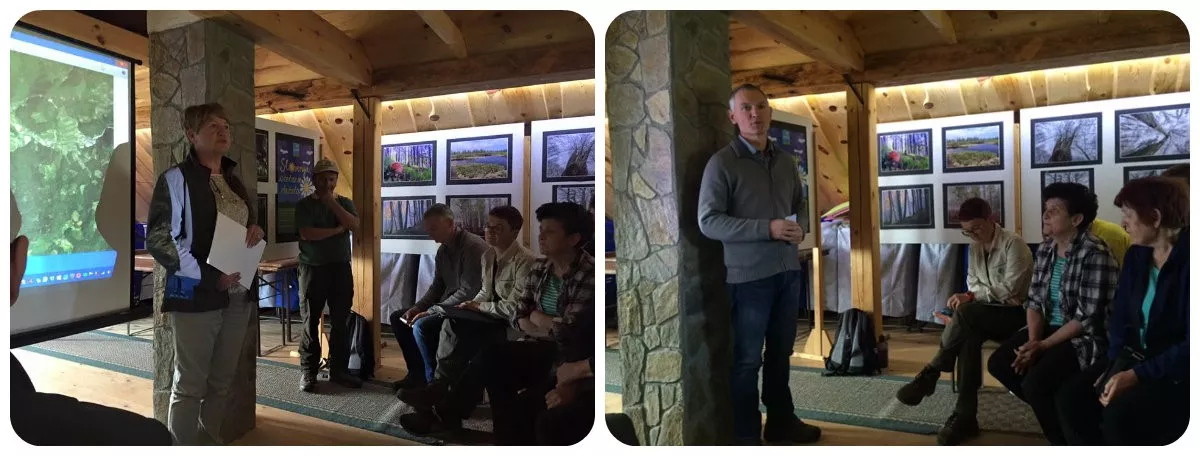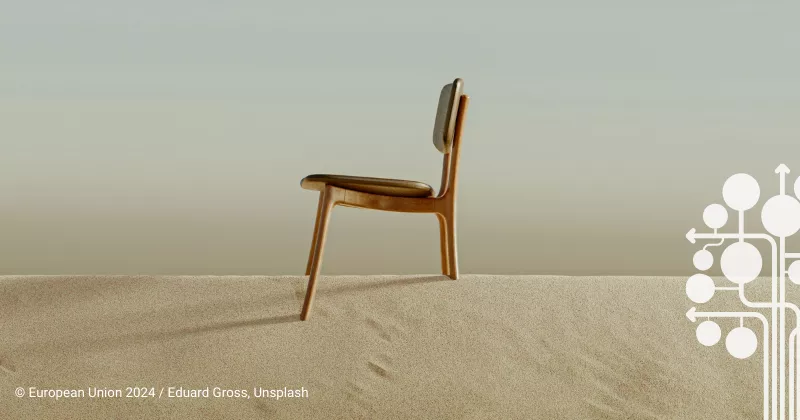Small events with a large reach (5/7)
The fifth Promoting Adult Skills (PAS) event was organised in Radeče, where we enriched our knowledge within a natural setting. The name of the event was “Restore the forests”, while the representatives of the region shared their belief that the forests constitute and essential component of the sustainable development of the region and an excellent opportunity for the local rural population.
The event prepared by the Cultural, Tourism and Recreational Centre Radeče, connected interesting participant groups, i.e.: secondary and higher education students, experts in the field of forestry as well as forestry professionals, forest owners and the local community, as well as us, representatives from the field of adult education. It was the diverse audience which generated added value to the mutual sharing of knowledge and experience regarding the development of rural population’s skills.
Definition of new knowledge and findings

Event participants first gathered at breakfast in the mountain cottage on Magolnik. The first contact which followed the indoor part of the event, during which different lecturers presented their organisations as well as several useful information on the life with forest. Speakers included the president of Prosilva Slovenia, an organisation whose members strive for co-natural, sustainable and efficient forest management. However, the implementation of these three principles calls for a dialogue aimed at finding solutions and linking of different stakeholder, including the local population.
Prof Jurij Diaci PhD from the Biotechnical Faculty of the University of Ljubljana shared his knowledge on restoration of forests after numerous disasters which have not spared Slovenia during the recent years, and reiterated that continuous upgrading of knowledge and its exchange are essential for every development, i.e. personal, social and economic.
The indoor part was completed by Mr Jože Prah from the Slovenian Institute for Forests who stressed that the lifelong learning concept also applies to forests. Forests are a significant driver of rural development. However, this shall require both learning and education. Today, learning and education need to be systematic and focused, while we must develop education approaches and knowledge for all generations. Learning constitutes a good motivational factor since it provides for the social, cultural and personal development and the development of active citizenship. Active citizens are important for the development of the region, country and the society in general. Development of social and civic competencies is thus important and essential for the development of the society since it enables constructive resolution of problems of both the local community and broader. In this respect, an element with high potential are the study groups, which represent an informal rural power and an open and democratic form of adult education. Their members are connected by common goals and interests while they also learn from each other.
In the second part of the event the participants went into the forest. Thus, we were also able to test the acquired theoretical knowledge in practice. The discussion and active participation resulted in much new knowledge, while the local attendants of the event agreed that the forests are a significant treasure, which is also the foundation for the future development of the region, since it offers many opportunities. Nevertheless, we must be able to identify and exploit them.

Development and education must be based on the needs of the local population and the environment. We should continuously develop the core abilities which can contribute to high value personal and social results, while they are also important in private life and for the community. Development of self-initiative and entrepreneurship in rural areas has great potential. With a proactive, independent and innovative approach individuals successfully engage in their own environment and set an example for others. And why forest? Since it provides the rural population with possibilities for active participation and due to its huge potential for new jobs, and last but not least since it requires an individual to learn – for the forest and from the forest, until the end of life.
Similar to other PAS events (in Celje, Slovenska Bistrica, Kranj and Novo mesto) this event also ended with the recognition of significance of fundamental opportunities of adults for both individuals and the society, while lifelong learning plays an essential role in rural development and active participation of the local population. Without knowledge there is no progress!
Simona Kavčič (simona.kavcic@acs.si), Slovenian Institute for Adult Education
Ms Simona Kavčič works for the Slovenian Institute for Adult Education, where she is responsible for promotional and information activities. She is also responsible for the Institute’s library which she tries to promote among all interested and participants in adult education. She is inspired by active people of various ages whose activity enriches both their own lives and the life of others.





